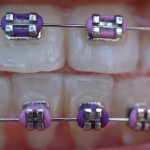
Becky Appleton summarises a randomised controlled trial investigating the effectiveness and acceptability of text-based Cognitive Behavioural Therapy for improving depression in young adults.
[read the full story...] Does delivering cognitive behavioural therapy via text messages help improve depression in young people?
Does delivering cognitive behavioural therapy via text messages help improve depression in young people?
Becky Appleton summarises a randomised controlled trial investigating the effectiveness and acceptability of text-based Cognitive Behavioural Therapy for improving depression in young adults.
[read the full story...]
Emanuele Osimo blogs about the 20-year follow up of the OPUS trial, which tested early intervention services for people with first-episode schizophrenia spectrum disorder.
[read the full story...]
Emmeline Lagunes-Cordoba summarises a cluster randomised controlled trial exploring the effectiveness of a low-intensity psychological intervention to reduce mental health stigma and improve help-seeking in the workplace.
[read the full story...]
In her latest blog, Francesca Zecchinato summarises findings from a recent pragmatic, partially randomised, patient preference trial on two forms of guided self-help for anxiety.
[read the full story...]
In this blog, Francesca Kingston summaries a clinical trial from the US Care Project, which investigated whether depression can be reduced during pregnancy and before birth using a brief, safe intervention.
[read the full story...]
270 pateints were randomised in this trial to compare high-fluoride toothpaste and high-fluoride mouth rinse for preventing white spot lesions during orthodontic treatment. The findings suggest a benefit for high fluoride toothpaste and fluoride mouth rinse in preventing white spot lesions.
[read the full story...]
Georgie Parker summarises a recent study which outlines the results of three trials exploring the effectiveness of a peer-led dissonance-based programme for preventing the onset of eating disorders.
[read the full story...]
The aim of this randomised trial was to compare the efficacy of a powered versus manual toothbrush in controlling plaque and gingival health in participants undergoing fixed orthodontic treatment in respect of both the short term and long term. The findings showed no differences between the brush types at any time points ( 1, 6 or 12 months).
[read the full story...]
In her debut blog, Ella Tuominen considers the Tavistock Adult Depression Study (TADS), which evaluated the cost-effectiveness of long-term psychoanalytic psychotherapy for treatment resistant depression compared to treatment as usual.
[read the full story...]
Sally Adams on new research from the US (a cluster randomised implementation trial) that integrates alcohol-related prevention and treatment into primary care.
[read the full story...]